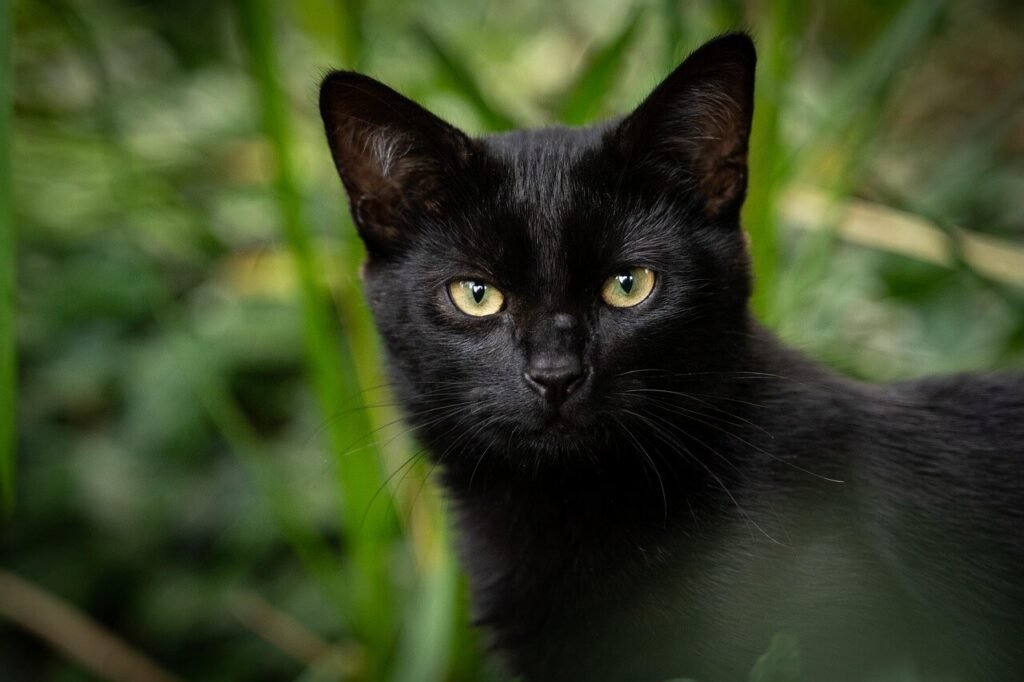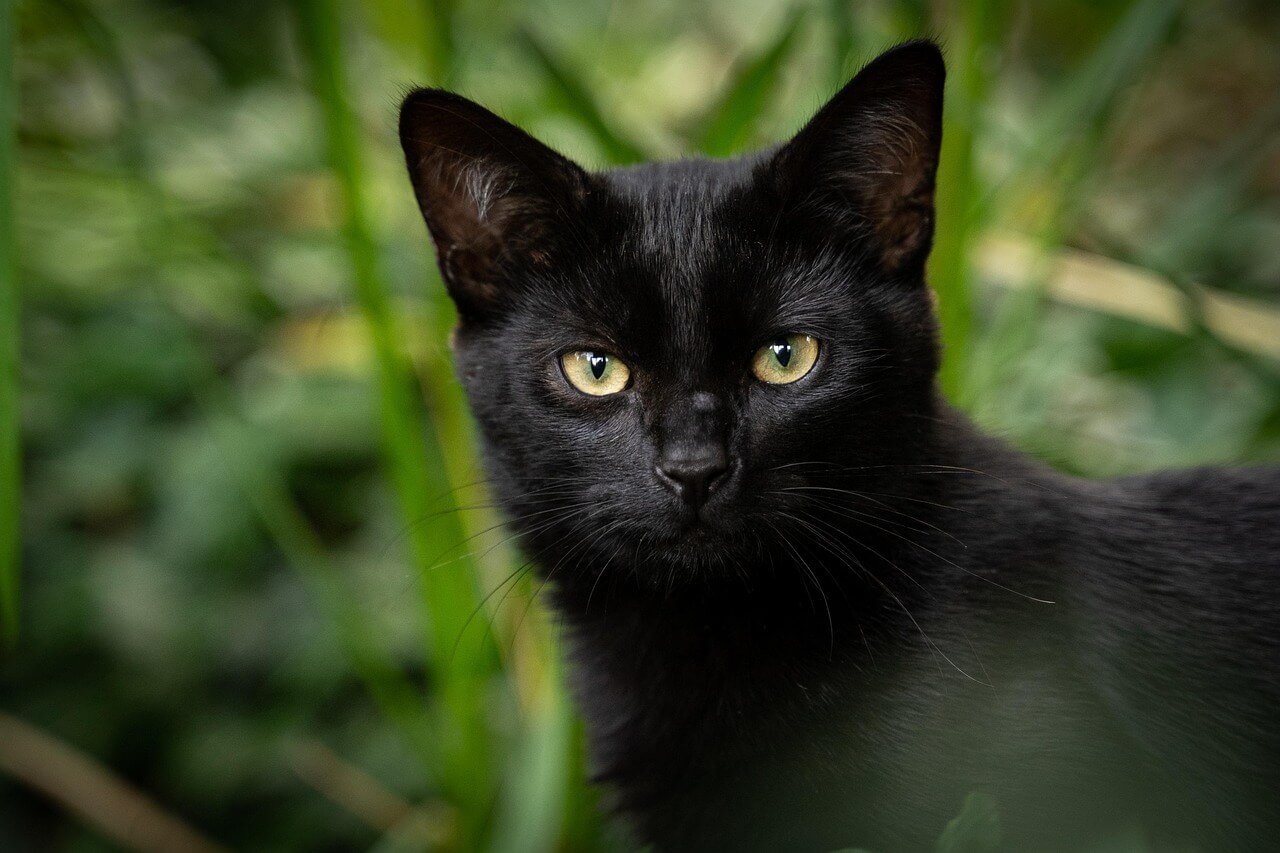19-Year-Old Cat Not Eating: What You Need to Know
When your 19-year-old cat stops eating, it can be a cause for concern. At this advanced age, cats are considered senior citizens, and their bodies undergo significant changes that can affect their appetite and overall health. A loss of appetite in an older cat may signal underlying medical issues, dental problems, or simply the natural decline associated with aging. However, it’s important not to panic—by understanding the potential causes and taking proactive steps, you can help your feline friend regain their appetite and enjoy their golden years comfortably. In this guide, we’ll explore everything you need to know about addressing this issue and ensuring your cat stays healthy and happy.
Common Reasons Why a 19-Year-Old Cat May Stop Eating
There are several reasons why an elderly cat might lose their appetite. Identifying the root cause is essential for addressing the problem effectively. Here are some common culprits:
Dental Issues : Conditions like gum disease, tooth decay, or oral tumors can make eating painful for older cats.
Chronic Health Conditions : Diseases such as kidney failure, diabetes, or hyperthyroidism often affect older cats and can reduce appetite.
Gastrointestinal Problems : Issues like constipation, nausea, or inflammatory bowel disease can make eating uncomfortable.
Medication Side Effects : Some medications prescribed for senior cats may suppress their appetite as a side effect.
Environmental Stress : Changes in routine, new pets, or moving to a new home can stress older cats and impact their eating habits.
Understanding these potential causes can help you take appropriate action and seek veterinary care if necessary.
Signs That Your Senior Cat Needs Immediate Attention
If your 19-year-old cat isn’t eating, certain symptoms may indicate a more serious issue requiring prompt veterinary intervention. Here’s what to watch for:
Weight Loss : Rapid or noticeable weight loss is a red flag that your cat isn’t getting enough nutrients.
Lethargy : A lack of energy or interest in activities could signal dehydration or malnutrition.
Vomiting or Diarrhea : Digestive upset accompanied by a loss of appetite may point to gastrointestinal issues.
Bad Breath : Foul-smelling breath could indicate dental problems or systemic illnesses like kidney disease.
Behavioral Changes : Hiding, aggression, or excessive vocalization may suggest pain or discomfort.
If you notice any of these signs, contact your veterinarian immediately to rule out serious conditions.
Check this guide 👉Why Is My Cat Not Eating Food But Eating Treats? Best 7 Tips
Check this guide 👉Why Is My Cat Not Eating After Vaccination? Best 7 Tips!
Check this guide 👉Why Is My New Cat Not Eating? Best 7 Health Tips!

Possible Causes of Loss of Appetite | Steps to Address the Issue |
|---|---|
Dental problems | Schedule a vet dental check-up |
Chronic illnesses | Test for diseases like kidney failure or diabetes |
Gastrointestinal issues | Provide bland, easily digestible food |
Medication side effects | Consult your vet about adjusting medications |
Environmental stress | Minimize changes and create a calm environment |
How to Encourage Your 19-Year-Old Cat to Eat Again
Encouraging an older cat to eat can require patience and creativity. Here are some strategies to try if your senior cat has lost their appetite:
Offer Smelly Foods : Cats rely heavily on smell to stimulate appetite; try warming canned food slightly to enhance its aroma.
Switch to Soft Food : If dental issues are suspected, softer foods like pate-style wet food may be easier for your cat to eat.
Provide Small, Frequent Meals : Older cats may prefer smaller portions offered more frequently throughout the day.
Create a Quiet Feeding Area : Ensure your cat’s feeding space is calm and free from disturbances like loud noises or other pets.
Hydrate with Broth : Add a small amount of low-sodium chicken broth to their food to increase moisture content and entice them to eat.
These techniques can help reignite your cat’s interest in food while accommodating their changing needs.
Long-Term Care Tips for Senior Cats
Caring for a 19-year-old cat requires special attention to their nutritional, physical, and emotional well-being. Here are some tips to ensure they live comfortably in their later years:
Regular Vet Check-Ups : Schedule biannual visits to monitor your cat’s health and catch issues early.
Monitor Weight and Hydration : Keep track of your cat’s weight and ensure they’re drinking enough water daily.
Adjust Their Diet : Transition to senior-specific formulas that cater to their unique dietary requirements.
Maintain Oral Health : Brush your cat’s teeth regularly (if tolerated) and schedule professional cleanings as needed.
Provide Comfortable Spaces : Ensure your home has cozy resting spots and easy access to essentials like food, water, and litter boxes.
By focusing on preventive care and comfort, you can enhance your senior cat’s quality of life and support their longevity.
Recognizing Oral Health Issues That Affect Eating
Dental problems are a common reason why older cats lose their appetite. Since cats are experts at hiding pain, it’s important to look for subtle signs that indicate oral discomfort. Here are some symptoms to watch for:
Drooling : Excessive drooling can signal mouth pain or irritation.
Pawing at the Mouth : This behavior often indicates discomfort or an inability to chew properly.
Difficulty Chewing : If your cat chews on one side of their mouth or drops food while eating, they may have dental issues.
Swollen or Bleeding Gums : Red, inflamed gums or visible blood around the mouth are clear signs of trouble.
Bad Breath : Persistent foul odors from your cat’s mouth could point to infections or rotting teeth.
If you notice any of these signs, schedule a veterinary dental exam promptly to address potential issues and restore your cat’s ability to eat comfortably.
Tailoring Your Cat’s Diet to Meet Their Changing Needs
As cats age, their nutritional requirements shift, and making dietary adjustments can help maintain their health and appetite. Here are some ways to adapt your senior cat’s diet:
Increase Protein Content : Older cats need high-quality protein to maintain muscle mass and support overall health.
Reduce Phosphorus Levels : Lower phosphorus diets can help protect kidney function in aging cats.
Add Omega-3 Fatty Acids : These anti-inflammatory fats can improve joint health and reduce inflammation in senior cats.
Incorporate Digestive Enzymes : Supplements like probiotics can aid digestion and improve nutrient absorption.
Choose Hydrating Options : Wet or moisture-rich foods can help prevent dehydration, which is common in older cats.
By customizing your cat’s diet to their specific needs, you can ensure they receive the nutrients necessary to thrive in their later years.
Creative Ways to Stimulate Your Cat’s Interest in Food
Sometimes, reviving your senior cat’s appetite requires making mealtime more engaging and enjoyable. Here are some ideas to make feeding time more appealing:
Use Interactive Feeders : Puzzle feeders or slow feeders can stimulate your cat’s natural hunting instincts and encourage eating.
Try Novel Flavors : Introduce new proteins or flavors your cat hasn’t tried before to spark curiosity.
Serve Food Warm : Slightly warming food enhances its aroma, which can entice even the pickiest eaters.
Offer Treats as Appetizers : A small, tasty treat before meals may stimulate your cat’s appetite for their main dish.
Hand-Feed if Necessary : For severely reluctant eaters, hand-feeding can provide comfort and reassurance during mealtimes.
These strategies can help reignite your cat’s interest in food while strengthening your bond with them.
Frequently Asked Questions About a 19-Year-Old Cat Not Eating
How long can a 19-year-old cat go without eating?
A senior cat should not go more than 24–48 hours without eating, as prolonged fasting can lead to serious complications like hepatic lipidosis.
Can stress cause my senior cat to stop eating?
Yes, environmental changes, loud noises, or the introduction of new pets can stress older cats and suppress their appetite.
What should I do if my cat refuses wet food?
Try offering different textures, flavors, or brands, or mix wet food with a small amount of warm water or broth to make it more appealing.
Is it normal for older cats to eat less?
While some reduction in appetite is normal with age, a significant or sudden drop in food intake should always be investigated by a vet.
Can dehydration contribute to a loss of appetite?
Yes, dehydration can make cats feel unwell and reduce their desire to eat. Ensure fresh water is always available and consider adding moisture-rich foods.
Prioritize Your Senior Cat’s Health and Happiness
A 19-year-old cat not eating is a sign that something may be amiss, whether it’s a minor issue or a more serious health concern. By staying vigilant, understanding their unique needs, and seeking veterinary care when necessary, you can help your beloved companion navigate their golden years with grace and comfort. Remember, your senior cat relies on you to provide love, care, and attention during this stage of life. With patience and dedication, you can ensure they continue to thrive and enjoy every moment by your side.
Canned Pumpkin for Cat Diarrhea: Best 7 Expert Tips! Natural remedy to firm stools, soothe upset bellies, and support gut health safely.
Can a Cat Give You Scabies? Best 7 Expert Tips! Discover the truth about feline mites, human skin risks, and how to protect yourself—without panic.
Cat Flea vs Human Flea: Best 7 Expert Tips! Discover the truth about bites, species, and how to eliminate infestations for good.
Weird Cat Behaviors: Best 7 Expert Tips! Discover why cats do strange things—and how to understand, not punish, their instincts for a happier home.





